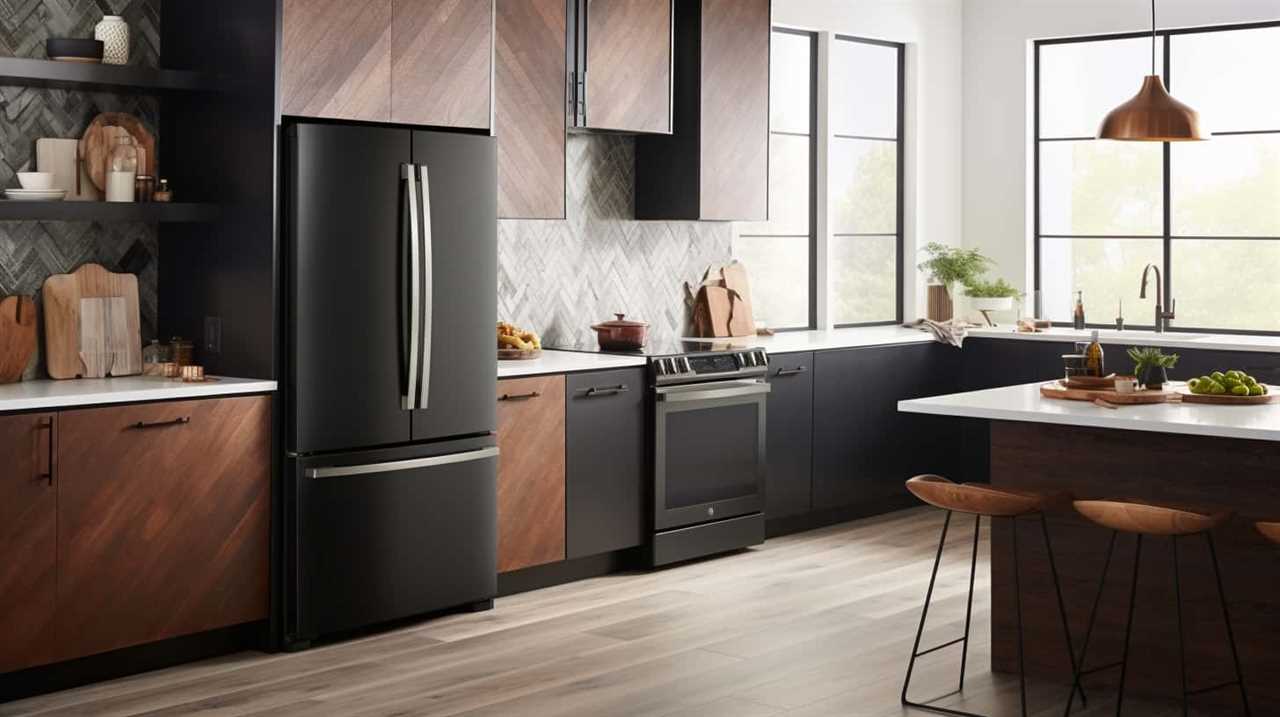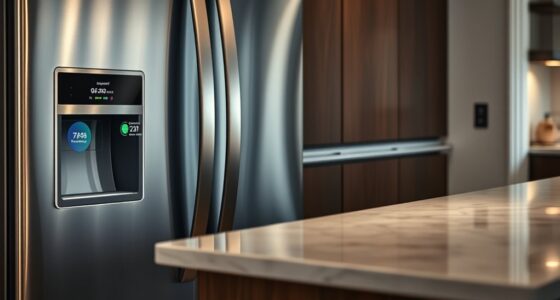In today’s modern world, where technology and convenience go hand in hand, it is important to think about the possible advantages of unplugging appliances when they are not being used. This simple action of removing your appliances from the electrical socket can bring significant benefits in different areas of your life.
From energy conservation and lower electricity bills to environmental impact and fire safety, the reasons to unplug appliances are both practical and essential.
Furthermore, by unplugging, you can mitigate the risks associated with extension cord hazards, protect electronic devices, ensure child safety, and prevent power outages.
In this article, we will delve into each of these reasons, providing you with a comprehensive understanding of why it is vital to unplug appliances when they are not actively in use.

Key Takeaways
- Unplugging appliances when not in use reduces energy consumption and carbon emissions.
- It helps lower electricity bills and improves financial stability.
- Unplugging appliances prevents fire hazards and electrical malfunctions.
- It contributes to environmental preservation and resource conservation.
Energy Conservation
Energy conservation is a key aspect of reducing electricity consumption and minimizing environmental impact. By implementing energy saving tips and practicing energy conservation, individuals can contribute to a more sustainable future.
The benefits of energy conservation are manifold. Firstly, it helps to reduce greenhouse gas emissions, which are a leading cause of climate change. Secondly, by using less energy, we can decrease our dependency on fossil fuels and promote the adoption of renewable energy sources.
Additionally, energy conservation leads to cost savings for consumers, as it lowers electricity bills. It also promotes energy security by reducing the strain on energy resources.
Lower Electricity Bills
Lowering your electricity bills is one of the key benefits of unplugging appliances when not in use. By conserving energy and reducing standby power consumption, you can significantly decrease the amount of electricity you consume and subsequently lower your monthly bills.
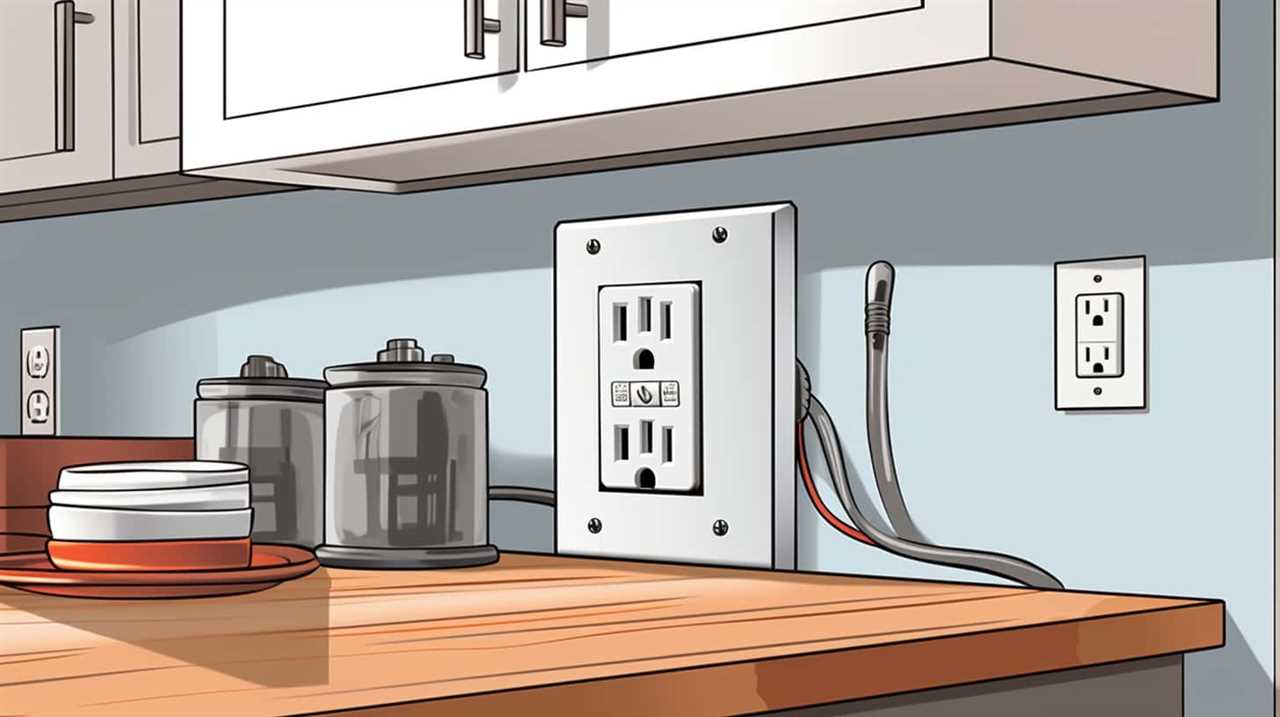
Taking this simple step can lead to substantial savings over time, making it a worthwhile practice for any household.
Energy Conservation Benefits
The energy conservation benefits of unplugging appliances when not in use include lower electricity bills. By manually disconnecting appliances from power sources, you effectively eliminate the standby power consumption known as vampire or phantom energy. This hidden energy usage occurs when appliances are plugged in but not actively in use.
Vampire energy accounts for a significant portion of energy consumption in households and contributes to higher electricity bills. By consciously unplugging appliances, you actively reduce energy wastage, resulting in lower energy consumption and ultimately lower electricity bills.
Additionally, promoting sustainability is another advantage of unplugging appliances. By minimizing energy waste, you contribute to the conservation of natural resources and reduce the environmental impact associated with energy production.
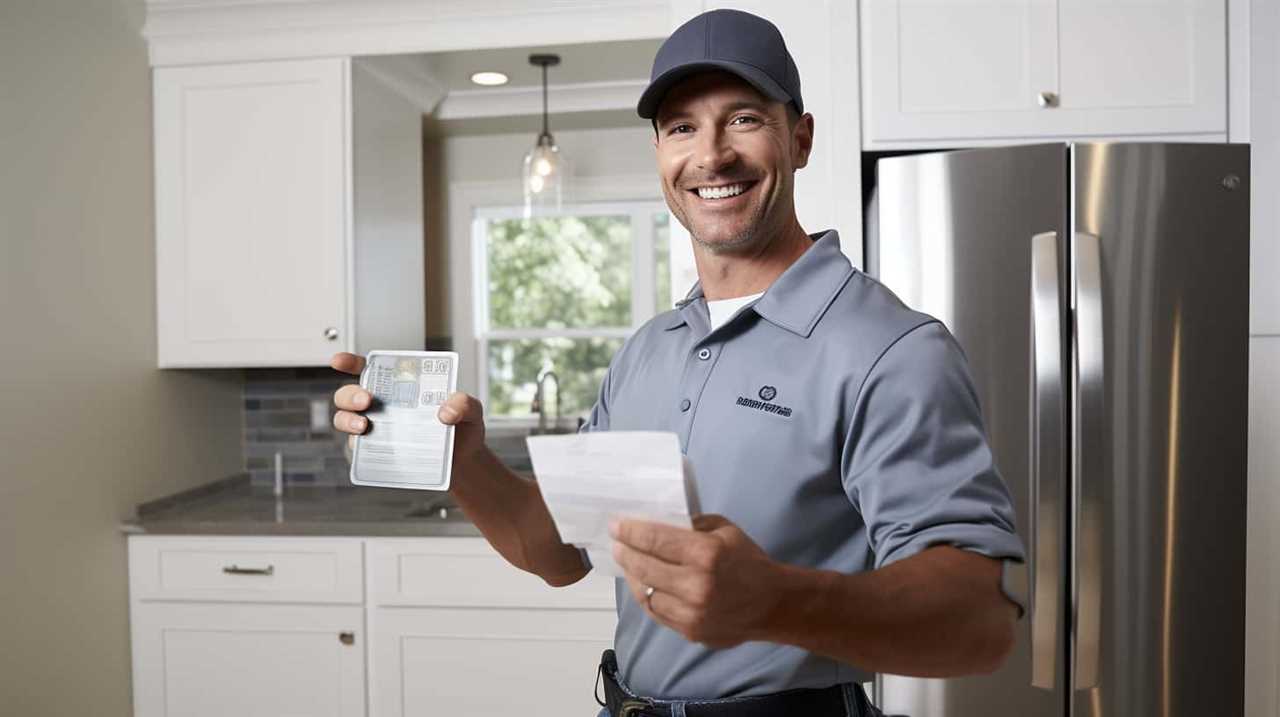
Unplugging appliances is a simple yet effective practice that can greatly benefit both your wallet and the planet.
Reduce Standby Power Consumption
By reducing standby power consumption, individuals can effectively lower their electricity bills while also conserving energy. Standby power, also known as vampire power, refers to the energy consumed by appliances and electronic devices when they are not in use but are still plugged in. This power consumption may account for up to 10% of a household’s energy usage.
To reduce standby power consumption, there are several energy-saving tips and standby power reduction techniques that individuals can employ. One effective method is to use power strips with built-in timers or switches to easily turn off multiple devices at once. Additionally, unplugging chargers, turning off computers and televisions completely, and enabling power-saving modes on appliances can also help reduce standby power consumption and lower electricity bills.
Environmental Impact
One significant reason to unplug appliances when not in use is their potential environmental impact. By leaving appliances plugged in, even when they are not actively being used, we contribute to unnecessary energy consumption. This energy consumption has several negative effects on the environment, including increased greenhouse gas emissions and depletion of natural resources. Here are five key points to consider:
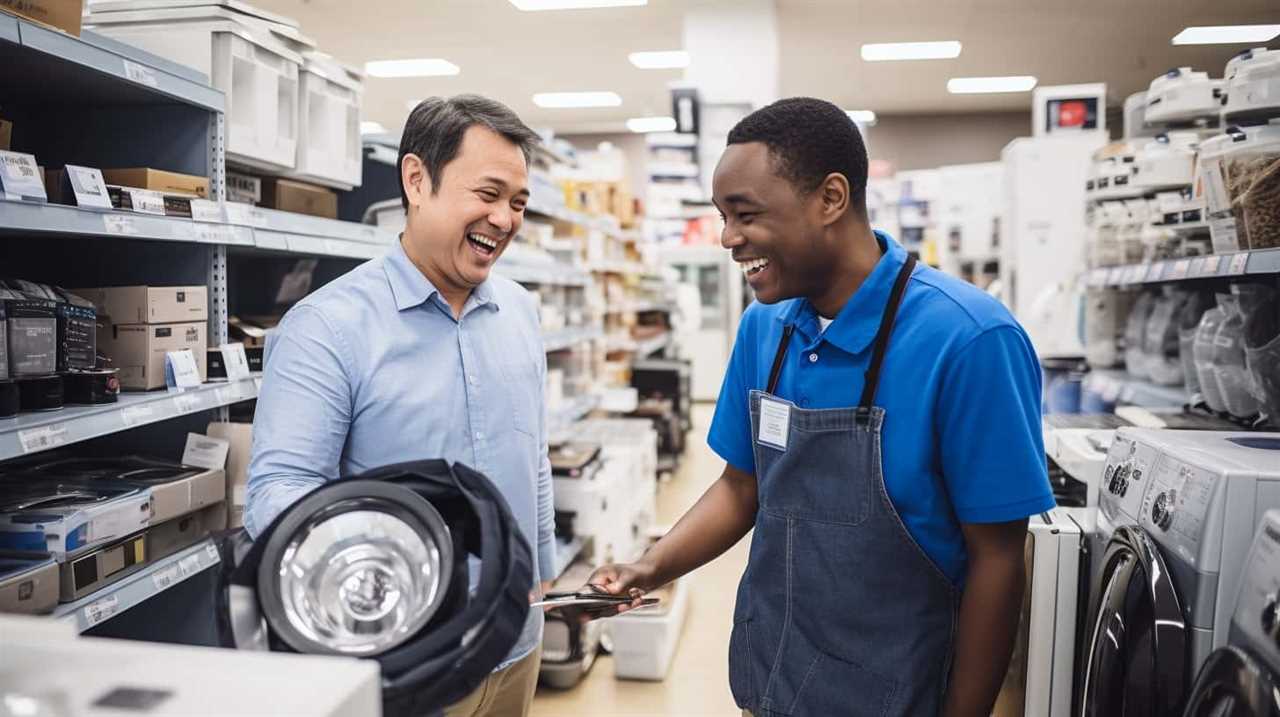
- Energy efficient appliances: Unplugging appliances helps to reduce overall energy usage, even for appliances labeled as energy efficient.
- Renewable energy sources: By using less electricity, we reduce the demand for energy production, which often relies on non-renewable sources like coal or natural gas.
- Carbon footprint reduction: Decreasing energy consumption directly reduces our carbon footprint, helping to combat climate change.
- Conservation of natural resources: Unplugging appliances reduces the need for resource extraction, such as coal mining or natural gas drilling.
- Environmental preservation: By taking small actions like unplugging appliances, we contribute to the preservation of our planet’s ecosystems.
Considering the environmental impact of leaving appliances plugged in, it is crucial to address the subsequent section on fire safety.
Fire Safety
To ensure fire safety, it is important to consider the potential risks associated with leaving appliances plugged in when not in use. Appliances that are left plugged in can pose a fire hazard due to factors such as electrical malfunctions, overheating, or short circuits. Fire prevention should be a top priority for every household, and one simple step to reduce the risk of fire is to unplug appliances when they are not in use. Regular appliance maintenance is also crucial in preventing fires. This includes checking cords and plugs for any fraying or damage, keeping appliances clean and free from dust or debris, and following manufacturer’s instructions for proper use and maintenance. By being proactive and practicing good appliance maintenance, we can minimize the risk of fire and protect our homes and loved ones.
| Risk Factors | Fire Prevention Tips | Appliance Maintenance |
|---|---|---|
| Electrical malfunctions | Unplug appliances when not in use | Regularly check cords and plugs for damage |
| Overheating | Avoid overloading electrical outlets | Keep appliances clean and free from dust |
| Short circuits | Install surge protectors | Follow manufacturer’s instructions for use and maintenance |
Extension Cord Hazards
Extension cords can present significant hazards when used improperly or without proper precautions. To ensure extension cord safety and effective electrical cord management, consider the following:
- Overloading: Do not plug too many devices into a single extension cord as it can lead to overheating and fire hazards.
- Damaged cords: Regularly inspect extension cords for frayed or damaged insulation, exposed wires, or loose connections. Replace any damaged cords immediately.
- Proper usage: Extension cords should only be used temporarily and not as a permanent solution to reach distant outlets.
- Suitable cords: Use extension cords that are rated for the intended purpose and have the capacity to handle the power demands of the connected devices.
- Tripping hazards: Place extension cords in areas where they won’t be stepped on or tripped over to reduce the risk of accidents.
By following these extension cord safety guidelines, you can minimize the potential hazards associated with their use.

Now, let’s move on to the next topic: phantom energy consumption.
Phantom Energy Consumption
Phantom energy consumption refers to the electricity used by appliances and devices when they are turned off but still plugged in. This phenomenon may seem insignificant, but it can have significant energy-saving benefits when addressed.
Energy-Saving Benefits
Appliances left plugged in but not in use can still consume energy, leading to unnecessary electricity usage and higher utility bills. Taking the time to unplug appliances when they are not in use can bring significant energy-saving benefits.
Here are five reasons why:

- Energy efficiency: Unplugging appliances eliminates phantom energy consumption, which can account for up to 10% of a household’s energy use.
- Cost savings: By reducing energy waste, unplugging appliances can lower electricity bills and save money in the long run.
- Environmental impact: Reducing unnecessary energy consumption helps to decrease greenhouse gas emissions and mitigate climate change.
- Extended appliance lifespan: Constantly being plugged in can put unnecessary strain on appliances, leading to shorter lifespans. Unplugging them when not in use can help prolong their lifespan.
- Fire safety: Unplugging appliances eliminates the risk of electrical fires caused by faulty wiring or power surges.
Unnecessary Electricity Usage
One common source of unnecessary electricity usage is the phenomenon known as phantom energy consumption, which can have a significant impact on both energy efficiency and utility bills.
Phantom energy consumption refers to the electricity wastage that occurs when electronic devices and appliances continue to draw power even when they are turned off or in standby mode. This happens because these devices often remain in a state where they are still connected to a power source, ready to be activated instantly.
While each individual device may consume only a small amount of electricity, the cumulative effect of multiple devices can be substantial.
To improve energy efficiency and reduce electricity wastage, it is important to unplug appliances when not in use or use power strips with built-in switches to completely cut off power to the devices.
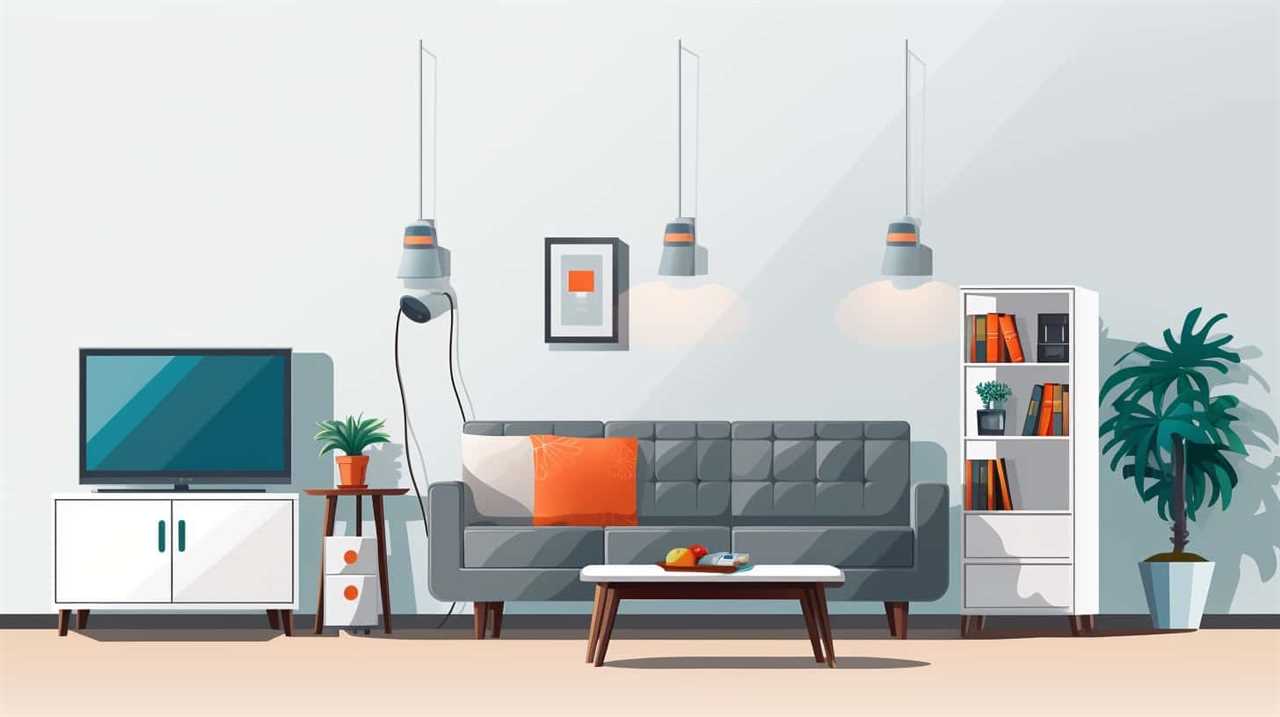
Hidden Energy Costs
Phantom energy consumption, also known as hidden energy consumption, refers to the electricity used by appliances and electronics when they are turned off but still plugged in. This constant flow of energy can have significant implications for both energy efficiency and utility bills.
Here are five energy-saving tips to minimize hidden energy consumption:
- Unplug unused devices: Unplugging appliances and electronics when not in use can prevent them from continuously drawing power.
- Use power strips: Plug multiple devices into a power strip and turn it off when not in use to cut off power completely.
- Invest in smart power outlets: These outlets can be controlled remotely, allowing you to turn off power to devices even when you’re not at home.
- Opt for energy-efficient appliances: Choose appliances with energy-saving features to reduce overall energy consumption.
- Educate yourself and others: Spread awareness about hidden energy consumption and its impact on energy efficiency to encourage others to take action.
Prolonged Appliance Lifespan
Maximizing the lifespan of appliances is achieved by regularly unplugging them when not in use. Unplugging appliances not only reduces hidden energy costs but also helps to prolong their lifespan. When appliances are left plugged in, they continue to draw small amounts of electricity, which can lead to wear and tear over time. By unplugging appliances, you can avoid this unnecessary electricity usage and minimize the strain on their internal components. This can result in a longer lifespan for your appliances, saving you money on replacements and repairs.
Additionally, by reducing the overall energy consumption in your home, you can also lower your electricity bills. So, by simply unplugging appliances when not in use, you can achieve both a prolonged appliance lifespan and lower electricity bills.

Reduce Carbon Footprint
To minimize your carbon footprint, it is important to unplug appliances when they are not in use. By doing so, you can reduce energy consumption and contribute to environmental sustainability. Here are five reasons why unplugging appliances is beneficial:
- Energy savings: Unplugging appliances eliminates standby power consumption, also known as vampire power, which accounts for a significant portion of energy waste.
- Cost savings: When you unplug appliances, you save on your electricity bill, as you are not paying for the energy consumed by idle devices.
- Extended appliance lifespan: By reducing the amount of time appliances are plugged in, you can extend their lifespan, reducing the need for frequent replacements.
- Reduced carbon emissions: Unplugging appliances reduces the demand for electricity, which in turn lowers carbon emissions from power plants.
- Environmental preservation: By reducing energy consumption, you contribute to the preservation of natural resources and help protect the environment for future generations.
Incorporating the habit of unplugging appliances when not in use is a simple yet effective way to make a positive impact on the planet and promote environmental sustainability.
Prevent Electrical Surges
Preventing electrical surges is crucial for the safety of your appliances and your home. When appliances are left plugged in, they are vulnerable to power surges that can damage their internal components and even cause fires.
Unplugging appliances when not in use not only protects them from power surges but also helps conserve energy and reduce your electricity bill.

Safety From Power Surges
One important safety measure to consider is the use of surge protectors to safeguard appliances against power surges. Power surges, also known as voltage spikes, can occur when there is a sudden increase in electrical flow, causing a rapid rise in voltage. This can damage or destroy electronic equipment connected to the power source. Surge protectors are designed to detect and divert excess voltage away from the connected devices, preventing potential damage.
Here are five reasons why surge protectors are essential for safeguarding electronic equipment:
- Prevents damage to sensitive components by diverting excess voltage.
- Provides multiple outlets for convenient and safe connection of multiple devices.
- Offers protection against lightning strikes and power outages.
- Saves money by extending the lifespan of appliances and electronic devices.
- Offers peace of mind by ensuring the safety of your valuable equipment.
Energy Conservation Benefits
Energy conservation is a significant benefit of unplugging appliances when they are not in use. By unplugging appliances, you can lower your energy consumption and increase energy efficiency in your home.
When appliances are plugged in, they continue to draw a small amount of electricity, even when they are turned off. This is known as standby power or vampire power. By unplugging appliances, you can eliminate this wasteful energy consumption and reduce your overall energy usage.
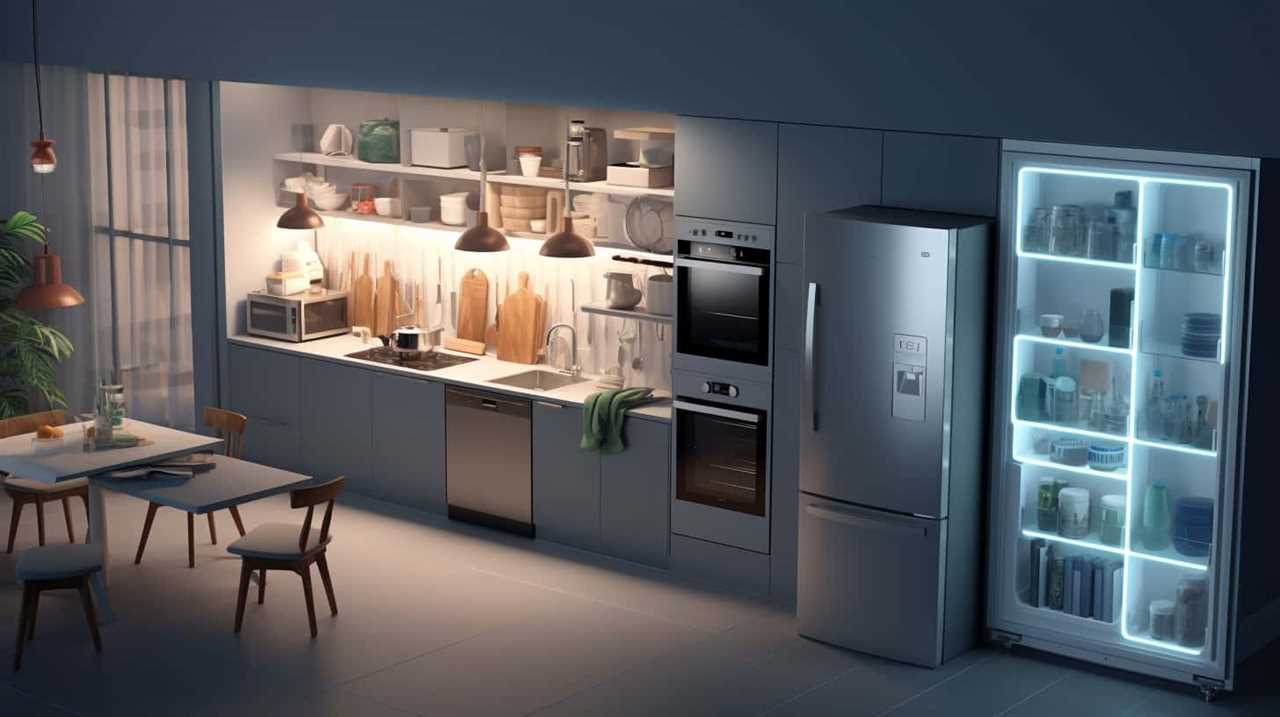
This not only saves you money on your energy bills but also helps to conserve valuable resources and reduce your carbon footprint. So, make it a habit to unplug appliances when they are not in use to maximize energy conservation and promote a more sustainable lifestyle.
Minimize Risk of Electrical Shock
To reduce the risk of electrical shock, it is essential to unplug appliances when they are not in use. By following this simple practice, you can minimize electrical hazards and ensure a safer living environment.
Here are five electrical safety measures you can take to further minimize the risk of electrical shock:
- Regularly inspect appliances for frayed or damaged cords.
- Keep appliances away from water sources to prevent accidental electrocution.
- Install ground fault circuit interrupters (GFCIs) in areas prone to moisture, such as bathrooms and kitchens.
- Avoid using appliances with wet hands or in wet conditions.
- Do not overload electrical outlets by plugging too many appliances into one socket.
By implementing these electrical safety measures, you can significantly reduce the risk of electrical shock and protect yourself and your loved ones.

Now let’s move on to the next section and explore how unplugging appliances can help avoid overheating.
Avoid Overheating Appliances
To prevent appliances from overheating, it is important to ensure they are not left plugged in when not in use. Overheating can lead to damage and reduce the electrical efficiency of the appliance. When an appliance is plugged in, even if it is turned off, it is still consuming a small amount of electricity.
This constant flow of electricity can cause the appliance to heat up, especially if it is left plugged in for extended periods. Overheating can shorten the lifespan of the appliance and increase the risk of electrical fires. By unplugging appliances when not in use, you can avoid potential damage and improve electrical efficiency.
It is a simple practice that can help to maximize the lifespan and performance of your appliances.

Protect Electronic Devices
Protecting electronic devices requires proper care and maintenance. By implementing the following protective measures and device maintenance practices, you can ensure the longevity and optimal performance of your electronic devices:
- Regularly clean your devices to remove dust and debris that can obstruct ventilation and cause overheating.
- Use surge protectors or uninterruptible power supply (UPS) devices to safeguard against power surges and fluctuations.
- Keep your devices in a cool and dry environment to prevent moisture damage.
- Use protective cases or covers to shield your devices from physical damage and scratches.
- Update your devices regularly with the latest software and firmware updates to ensure security and performance enhancements.
Taking these proactive steps will not only protect your electronic devices but also maximize their lifespan and optimize their functionality.
Child Safety
Child safety is a paramount concern for parents and caregivers when it comes to the use of appliances.
Children are naturally curious and can be drawn to electrical outlets, posing a potential risk of electrical shock or injury.

To minimize these dangers, it is crucial to implement childproofing measures, such as using electrical outlet covers.
These covers serve as a protective barrier, preventing children from inserting objects into the outlets.
By covering all accessible outlets in the home, parents can create a safer environment for their children.
It is important to note that outlet covers should be securely installed and periodically checked for any signs of wear or damage.

Taking these proactive steps can significantly reduce the risk of accidents and ensure the well-being of children in the household.
Prevent Power Outages
One effective way to prevent power outages is by unplugging appliances when they are not in use. This simple action can help reduce the strain on the electrical grid and minimize the risk of power surges or tripped circuits. By unplugging appliances, you are also contributing to energy conservation and reducing your electricity bill.
Here are five reasons why unplugging appliances can help prevent power outages:
- It reduces the overall demand on the electrical grid.
- It prevents power surges caused by plugged-in appliances.
- It minimizes the risk of tripped circuits.
- It conserves energy and reduces electricity consumption.
- It helps save money on your electricity bill.
Peace of Mind
Unplugging appliances when not in use provides a sense of reassurance. It allows us to have peace of mind knowing that we have taken proactive steps to reduce the risk of electrical hazards and potential accidents.

By unplugging appliances, we eliminate the possibility of electrical surges or short circuits that could lead to fires or damage to our homes. This simple act can greatly improve our well-being by reducing stress and anxiety related to the safety of our living environment.
We can rest easy, knowing that we have done our part in maintaining a safe and secure home. So, let’s make it a habit to unplug appliances when not in use and enjoy the peace of mind and improved well-being it brings.
Frequently Asked Questions
Can Leaving Appliances Plugged in When Not in Use Cause Damage to the Appliance?
Leaving appliances plugged in when not in use can potentially cause damage to the appliance, including overheating and short circuits, which can lead to fires. Additionally, it has an environmental impact by consuming unnecessary energy.
Are There Any Specific Appliances That Should Always Be Unplugged When Not in Use?
Certain appliances, such as televisions, computers, and chargers, should always be unplugged when not in use. This practice not only prevents potential damage but also provides energy-saving benefits, reducing electricity consumption and saving costs in the long run.

Does Unplugging Appliances Really Make a Significant Difference in Electricity Consumption?
Unplugging appliances when not in use can result in significant energy savings. Standby power consumption, often referred to as vampire power, can contribute to higher electricity bills. Therefore, it is advisable to disconnect appliances to minimize unnecessary energy consumption.
Can Leaving Appliances Plugged in Increase the Risk of Electrical Shocks?
Leaving appliances plugged in increases the risk of electrical shocks, as it exposes users to live electrical currents. Practicing electrical safety precautions by unplugging appliances when not in use mitigates this risk and reduces phantom power consumption, leading to lower electricity bills.
Is It Necessary to Unplug Appliances Even When Using Surge Protectors or Power Strips?
Unplugging appliances when not in use offers energy-saving benefits by reducing standby power consumption. Additionally, it mitigates potential fire hazards caused by electrical faults or overheating. Unplugging remains necessary even when using surge protectors or power strips.
Conclusion
In conclusion, unplugging appliances when not in use is a simple yet effective way to conserve energy, lower electricity bills, and minimize environmental impact.

It also reduces the risk of fire hazards and extension cord accidents, protects electronic devices from power surges, ensures child safety, and prevents power outages.
By adopting this practice, individuals can have peace of mind knowing they are contributing to a greener and safer environment.
Unplugging appliances is a small step that yields significant benefits and should be embraced by everyone.
